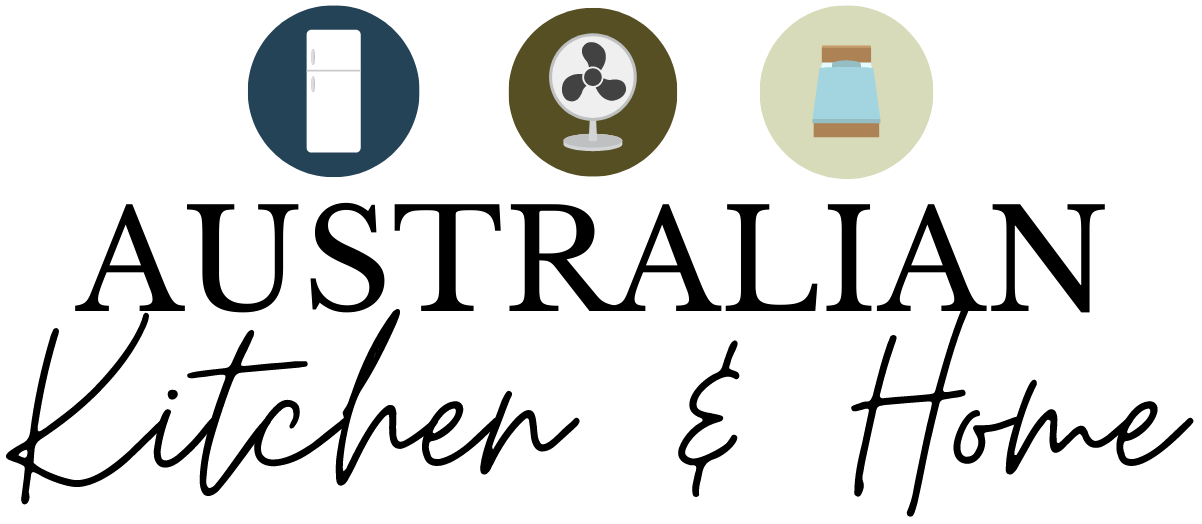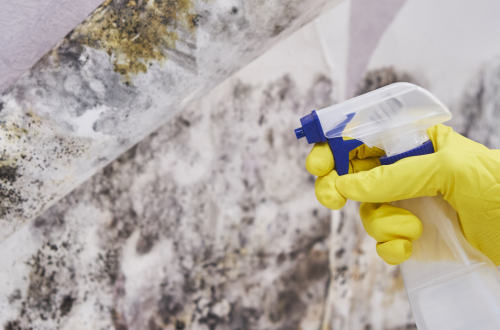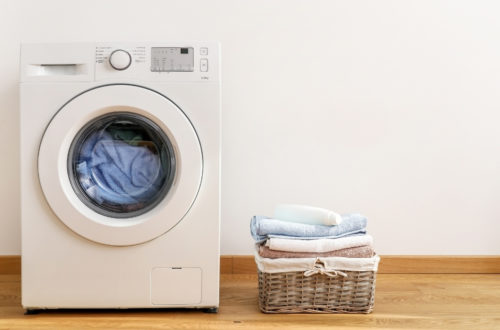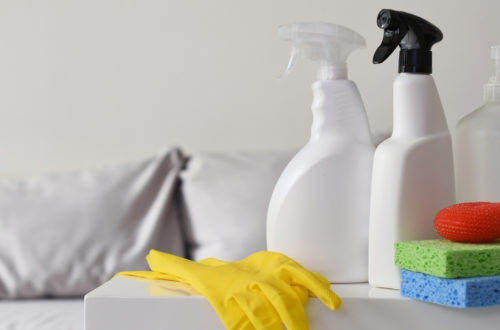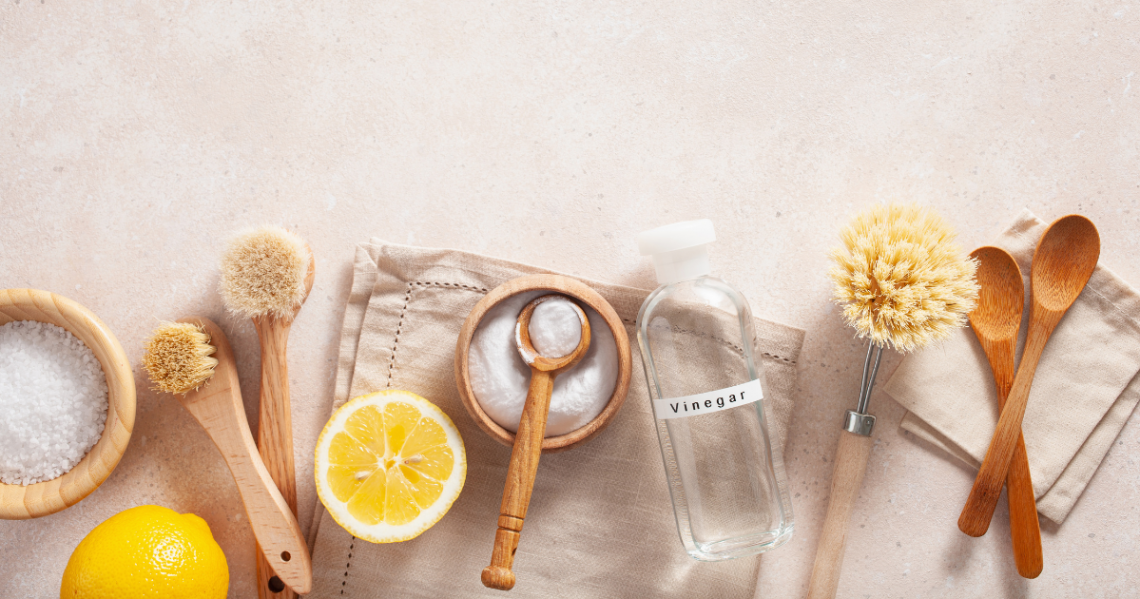
Eco-Friendly Kitchen Cleaning Tips
We all want to know that our homes, and especially our kitchens, are as clean and disinfected as they possibly can be. Does that mean that we have to use harsh, chemical cleaners to keep them clean and sanitized? Absolutely not! There are lots of wonderful natural ingredients that you can use to keep everything clean while still being as eco-friendly as possible.
There are lots of reasons that you may want to use eco-friendly cleaning products and practices from protecting the health of your children and pets, to just wanting to make your home more environmentally friendly, and reducing your carbon footprint. Keep reading to find out some great eco-friendly tips and tricks to keep your kitchen clean.
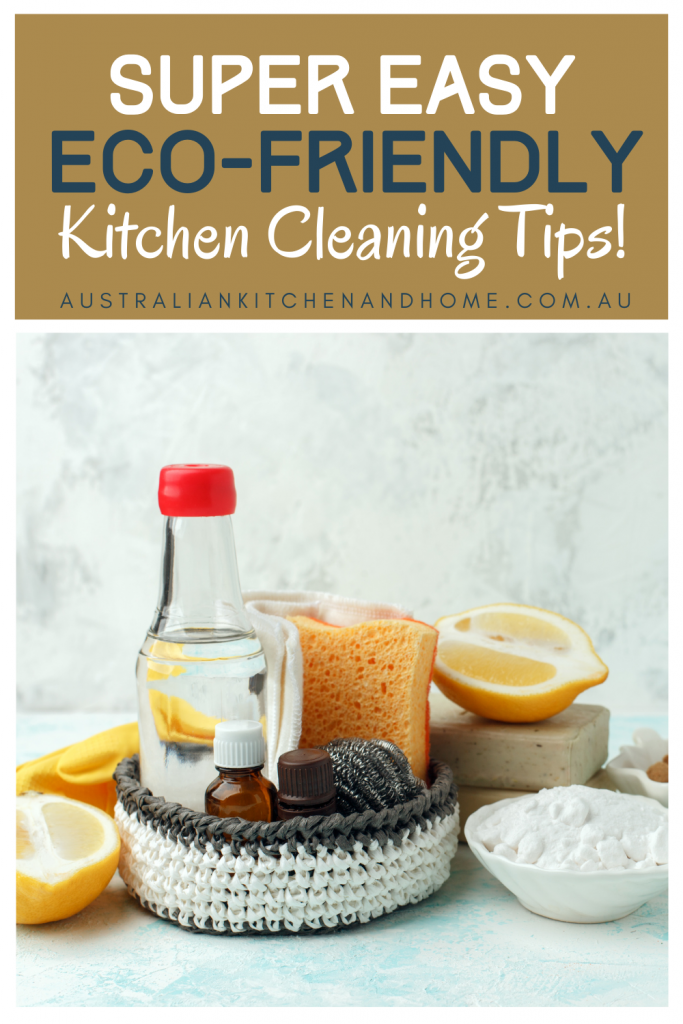
Contents
Dish soap is not just for dishes.
Did you know that dish soap can be used to clean way more in your kitchen than just your dirty dishes? One to two tablespoons of dish soap and a bucket of warm water will make an excellent floor cleaner. You can also mix a little dish soap and water in a spray bottle and use it as a cleanser for your appliances.
Microwaves, stoves, refrigerators, and countertops can all benefit from a wipe down with this mixture. Just make sure to go back over them with a damp clean towel to wipe away any residue. You can use this same mixture to wipe down your cabinets, the same degreasing action that pulls grime off of dishes can also get grease, fingerprints, and spills off of your kitchen cabinet doors. Pick your favourite environmentally friendly soap, and have your kitchen sparkling in no time.
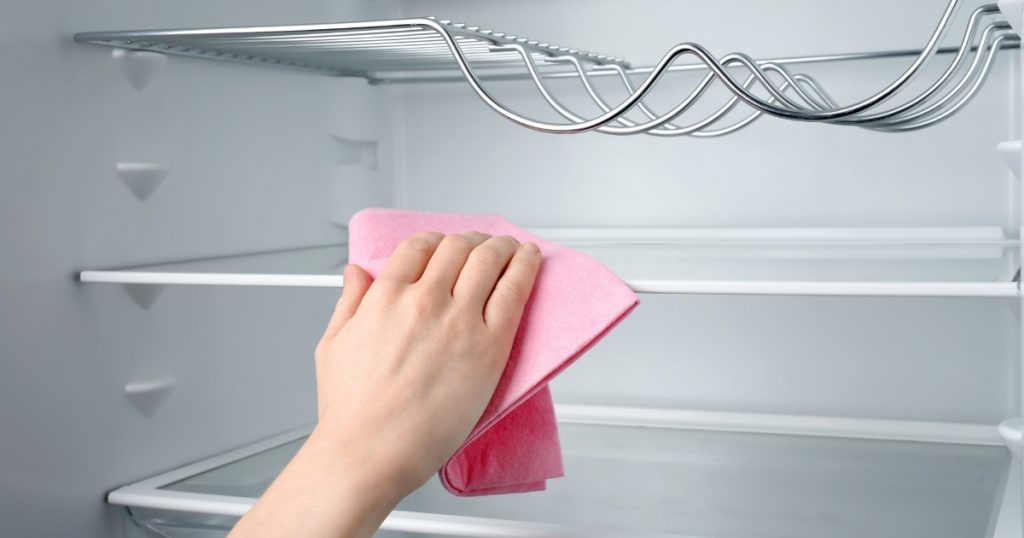
Ditch the Paper Products
Paper towels are super absorbent and they make quick work of cleaning up spills in the kitchen but they aren’t at all environmentally friendly. Did you know that it takes 17 trees and that 20,000 gallons of water are polluted to make one ton of paper towels? One ton may seem like a lot, and it is, but since they are a single-use paper product one ton isn’t going to go very far.
Instead of paper towels use rags to clean and absorb messes and spills that can be used again and again. Simply wash them once they are soiled and use them again. Towels don’t necessarily have to be “towels” either. If you have some old t-shirts, fabric scraps, table napkins, or even old socks these can also be used as a towel or rag.
Find more super simple eco-friendly kitchen swaps here.
Use Vinegar
You probably already have white vinegar in your pantry for cooking, but did you know that you can use them for cleaning your kitchen as well? Vinegar is naturally antibacterial and has many uses for cleaning the kitchen. Use a vinegar and water mixture to clean your windows, or place a microwave-safe bowl full of vinegar in your top dishwasher rack to clean and deodorize it.
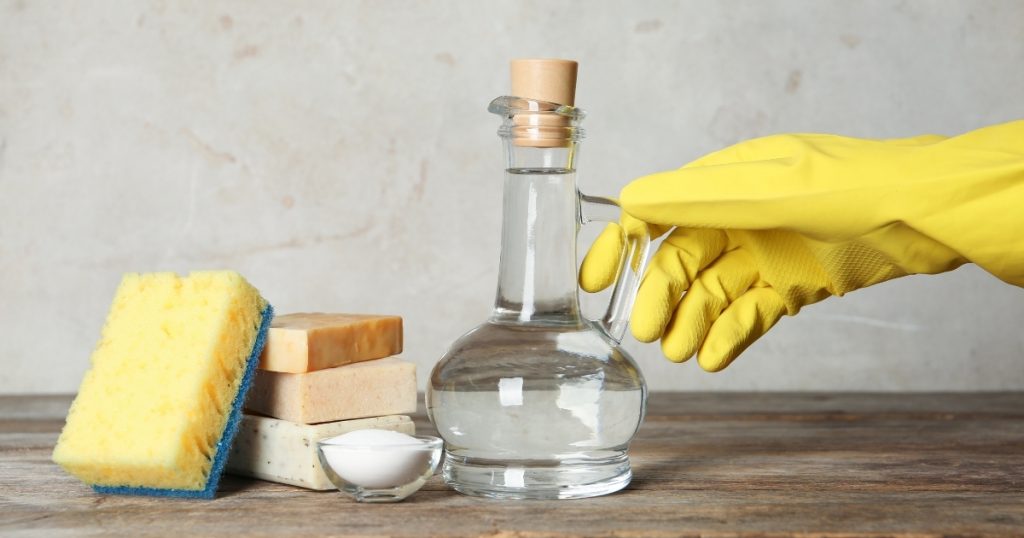
Put vinegar and water in 1:1 ratio in a spray bottle and keep it in your kitchen. This mixture can be used to clean your refrigerator inside and out, your countertops, your cutting board, and even any greasy splatters on your stove. If you are using it on your stove, let it sit for ten minutes before wiping off, it doesn’t wipe off easily, simply let it sit a little bit longer.
Use vinegar to clean your coffee pot or tea kettle. Use the same 1:1 ratio of vinegar and water and pour it into the reservoir of your coffee pot or directly into your kettle. Run the coffee pot as normal or simply boil the kettle on the stove, after it is finished allow it to cool, wash the pot or kettle to remove the vinegar smell and taste. For coffee pots, you may need to run a cycle or two of water.
Does your Instapot ring, smell or have stains on it? Simply soak the ring in a mixture of vinegar and water for about an hour and allow it to air dry. Additionally, you can remove odours and stains from the Instapot itself by filling it with water, white vinegar, and a lemon rind and running the steam cycle for a few minutes.
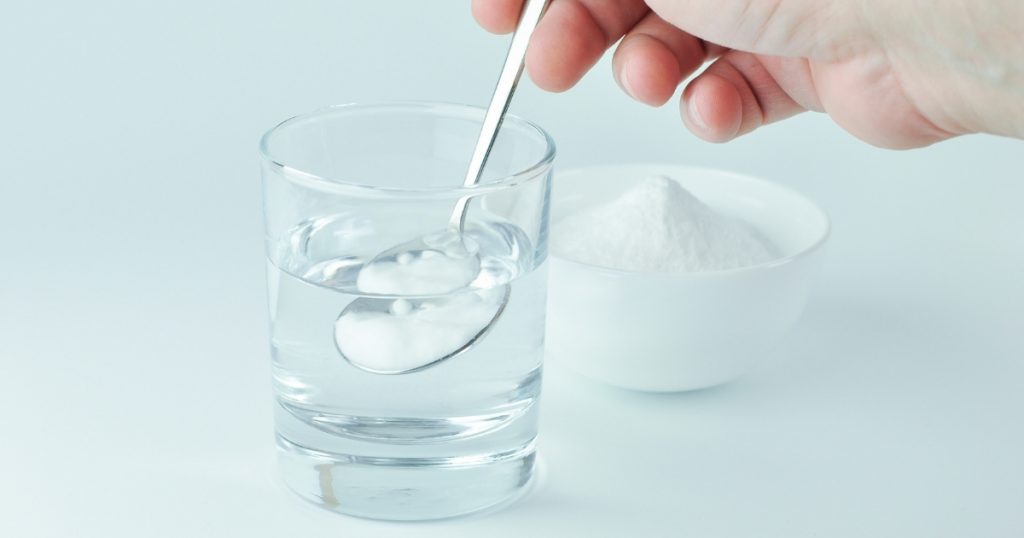
Baking Soda
Baking soda is not just for baking, this wonderful white powder has multiple cleaning uses in your kitchen as well. Sprinkle baking soda on mould and make a little paste with water to remove it. You can also use baking soda to clean a messy stovetop, just pour some on to the stove, let it sit for a few minutes and scrub gently.
Is there grease build up on the outside of your favourite pots and pans? Make a paste with baking soda and water and scrub the mess right off. Baking soda is also deodorizing, so place a box in your refrigerator to keep any odours to a minimum. Do you have rust on your cast iron pans? Sprinkle them with baking soda and rub it with a potato cut in halves like a scouring pad and the rust will be removed, no harsh chemicals required!
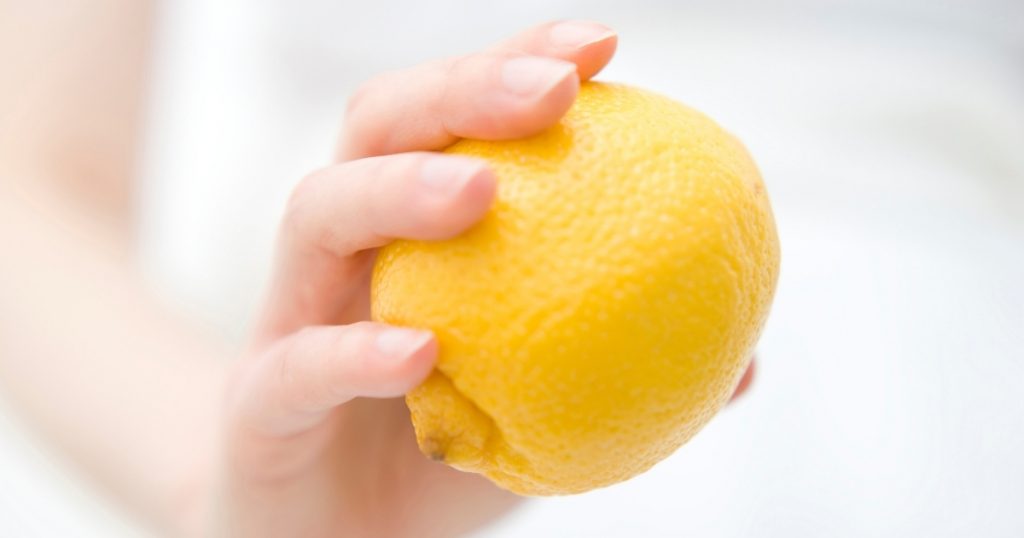
Lemons
Lemons aren’t just for eating either! Not only do they smell amazing, but they are antibacterial as well. Rub a cut lemon across your cutting board to clean and deodorize it. Do you have dull-looking copper pans? Take a cut lemon and sprinkle it with salt and then rub it on the outside of your copper pans until they shine like new. You can also mix lemon juice and baking soda to remove any stains from your plastic food containers.
Could your garbage disposal use a little freshening up? Toss half a lemon, a handful of kosher salt and some ice cubes down it and grind away. Your disposal will smell clean and fresh. You can also use a cut lemon or lemon juice to remove stains and odours from plastic food containers.
There you have it, some simple tips to keep your kitchen clean and fresh, and more eco friendly too. You don’t have to buy expensive environmentally friendly cleansing products, because chances are you already have some right in your pantry. Do you have any eco-friendly kitchen tips to share?
Do you want to make beeswax wrap? It is easy! Learn how here. Read some great advice on cleaning mould.
For more amazing cleaning tips to make your life easier, check out this page next!


